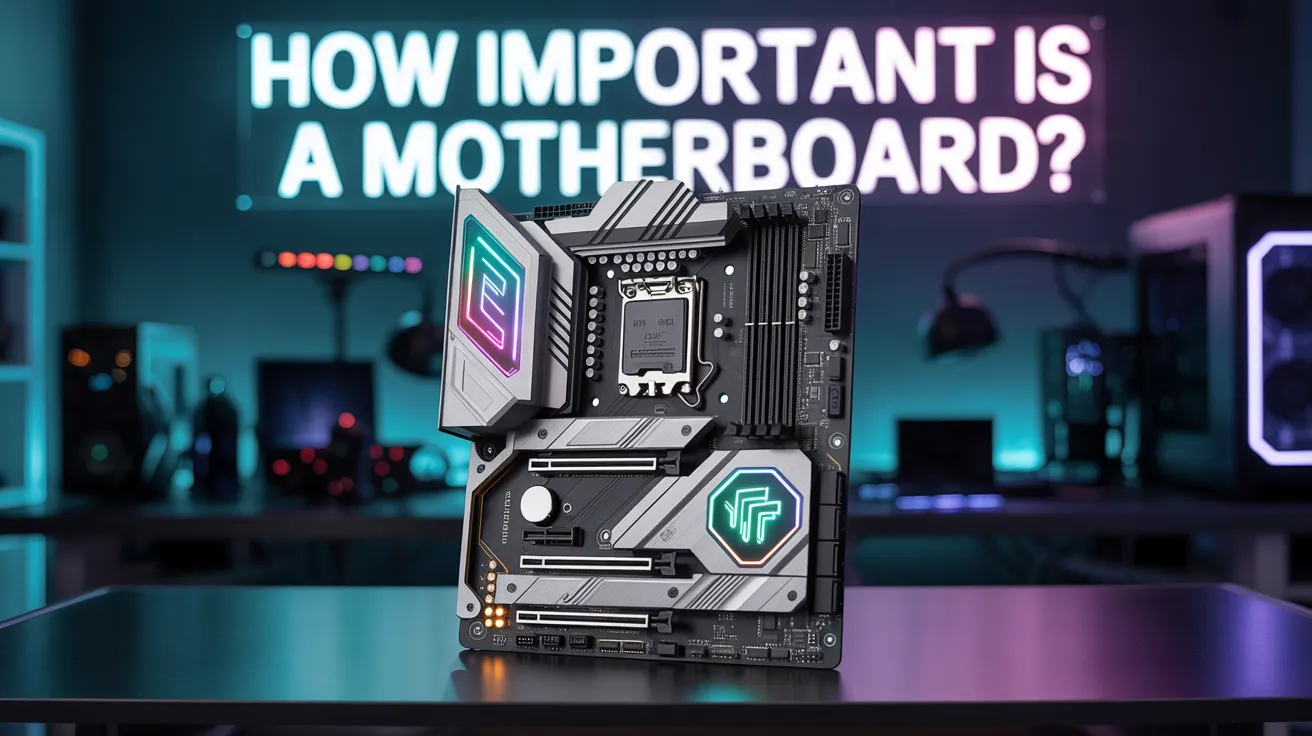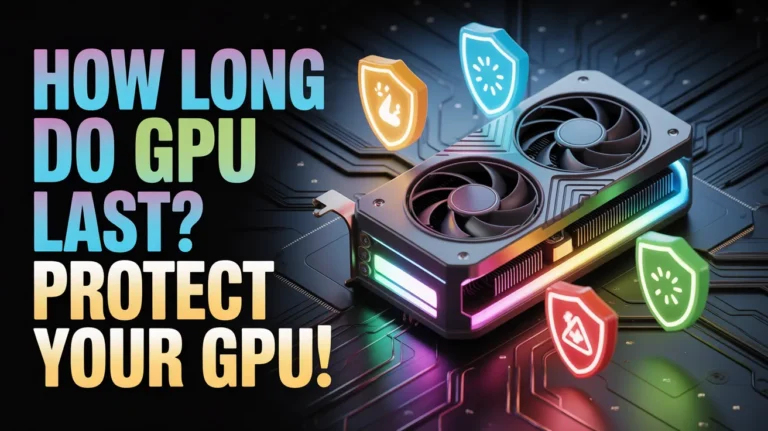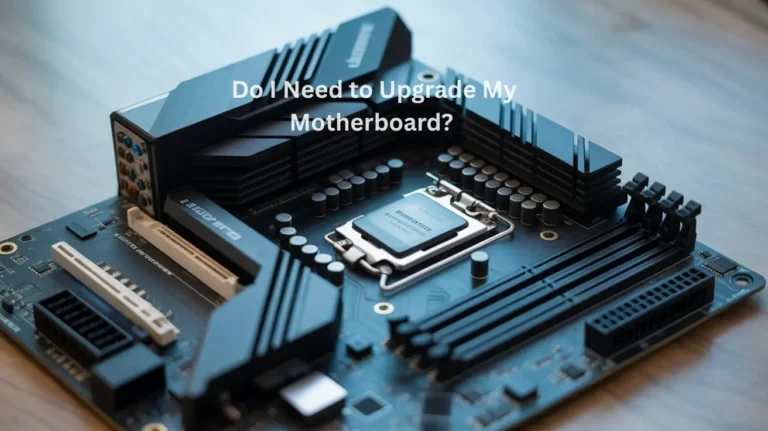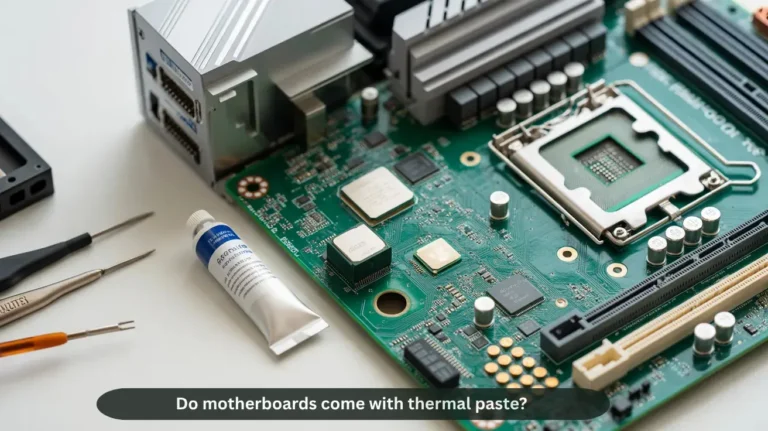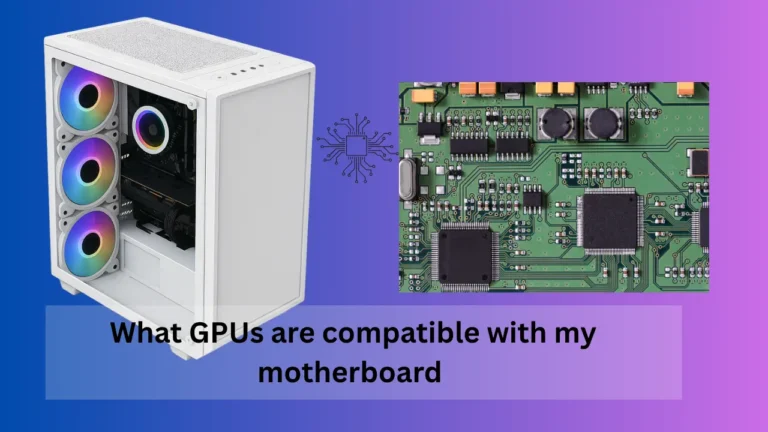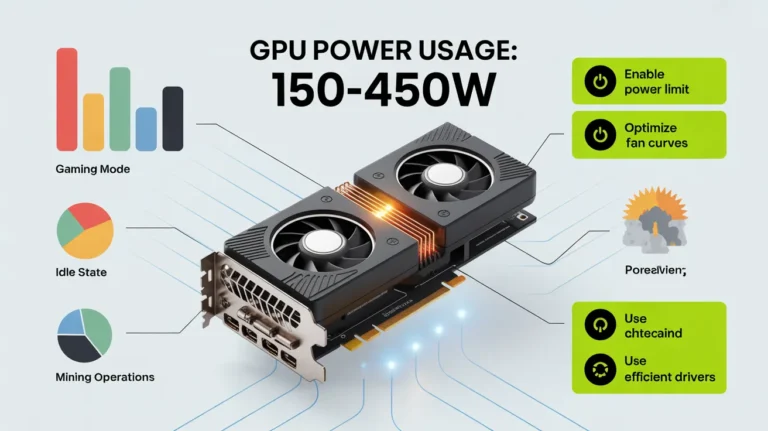How important is a motherboard for gaming? Choose The Best!
A motherboard plays a crucial role in gaming by connecting all the components of your computer. It helps ensure smooth performance, stability, and fast communication between components, such as the CPU, RAM, and GPU. Selecting a high-quality motherboard can significantly enhance your overall gaming experience.
In this guide, we will explain why the motherboard is crucial for gaming and how to select the best one for your specific needs.
What Key Factors Should You Consider When Choosing a Gaming Motherboard?
Selecting the correct gaming motherboard is crucial for achieving optimal performance, ensuring compatibility, and facilitating future upgrades.
- CPU Compatibility: Ensure it supports your processor (Intel or AMD) for optimal gaming performance.
- RAM Support & Speed: Check maximum capacity and supported frequencies for smooth multitasking.
- Expansion Slots & PCIe: Ensure there are enough slots for GPUs, SSDs, and future upgrades.
- Connectivity Options: USB ports, Wi-Fi, Bluetooth, and Ethernet matter for gaming peripherals.
- Form factor, such as ATX, Micro-ATX, or Mini-ITX, affects case compatibility and airflow.
- Overclocking & Cooling Features: Essential for stable high-performance gaming.
- Durability & Build Quality: High-quality components reduce overheating and extend lifespan.
- Aesthetics & RGB Options: Customizable lighting enhances the visual appeal of your gaming setup.
This naturally includes gaming motherboard features, performance, compatibility, upgradeability, and high-performance gaming keywords for SEO and NLP relevance, keeping it mobile-friendly and engaging.
Choosing the Best Motherboard for Gaming: Tips and Tricks

For the optimal gaming experience, select a motherboard that ensures compatibility, optimal performance, and future upgrade potential.
- Compatibility: Match with your CPU, GPU, and RAM.
- Performance: Opt for faster PCIe slots and memory speeds.
- Expansion: Ensure ample PCIe slots and USB ports.
- Build Quality: Opt for motherboards with robust VRMs for reliable power.
- Networking: Opt for Wi-Fi 6 or Ethernet for a lag-free gaming experience.
- Budget: Balance performance with cost for future upgrades.
The correct motherboard boosts gaming, ensuring seamless connectivity and faster load times.
Why Does a High-Quality Gaming Motherboard Matter?
A high-quality gaming motherboard ensures superior performance, stability, and future-proofing for an enhanced gaming experience by supporting advanced features, high-speed connections, and powerful hardware compatibility.
Optimised Performance: Delivers smooth Gameplay and faster frame rates.
Future-Proof: Supports the latest technologies and upgrades for long-term use.
Reliable Stability: Minimises crashes and lag during intense gaming sessions.
Enhanced Connectivity: High-speed ports (USB, Ethernet) for faster data transfer.
Superior Power Delivery: Provides stable power to critical components, such as the CPU and GPU.
Expanded Compatibility: Works seamlessly with top-tier graphics cards and peripherals.
With a gaming motherboard, you unlock the full potential of your gaming rig, enabling immersive and uninterrupted gaming sessions.
Also Read: Are all motherboards compatible with all graphics cards?
How Does the Motherboard Affect Your Gaming Experience?
The motherboard has a significant impact on gaming by ensuring system stability, performance, and compatibility with key components, which directly affects gaming speed and smoothness.
- Performance: Faster data transfer for higher FPS and less lag.
- Compatibility: Supports advanced GPUs, RAM, and storage for smooth Gameplay.
- Stability: Minimises crashes and ensures smooth gaming sessions.
- Upgradability: Allows easy future upgrades to handle new games.
A quality motherboard optimises your gaming experience and keeps your system future-ready.
Can the Right Motherboard Improve Gaming Performance?

Yes, a better motherboard can improve gaming performance, but it’s not the only factor that matters. A high-quality motherboard offers superior power delivery, faster data transfer, and enhanced stability, allowing the CPU and GPU to operate optimally. However, upgrading the GPU or CPU often has a more noticeable impact on gaming.
Does the Motherboard Affect Frame Rates in Gaming?
The motherboard doesn’t directly affect gaming frame rates, but it supports components like the CPU and GPU that do. A good motherboard ensures efficient communication between parts, preventing bottlenecks. While the CPU and GPU are the primary factors, a high-quality motherboard helps them perform optimally, resulting in improved gaming performance.
Is Upgrading Your Motherboard for Gaming Worth It?
Upgrading your motherboard for gaming can be worthwhile if you’re seeking improved performance, enhanced compatibility with newer components, and future-proofing your system.
- Improved Performance: Unlock faster speeds with support for newer CPUs and RAM.
- Enhanced Compatibility: Ensure your system works with the latest GPUs, storage, and peripherals.
- Future-Proofing: Stay ahead with features like PCIe 4.0, faster memory slots, and USB 3.2.
- Stability and Reliability: Prevent bottlenecks and enhance overall system stability for extended gaming sessions.
- Enhanced Overclocking Support: Unlock more features to push your hardware to its limits.
What Are the Signs of a Bad Motherboard for Gaming?

A faulty motherboard can significantly impact your gaming experience by causing instability, poor performance, and hardware compatibility issues.
- Frequent Crashes or Freezes: Unexpected system crashes during games.
- Poor Frame Rates: Significant drops in FPS or lag despite having a good GPU.
- No Display or POST Errors: Issues with booting or displaying video on the monitor.
- Incompatible Hardware: Difficulty installing or using new components, such as RAM or CPU.
- Overheating: Constant overheating despite proper cooling solutions.
- Unresponsive Ports: USB or audio ports that fail to function correctly.
- Corrupted BIOS/Failure to Boot: BIOS errors or the system not turning on at all.
By identifying these signs, you can prevent damage and ensure optimal gaming performance!
Best Gaming Motherboards for 2025
| Model | Chipset | Socket | Key Features | Price | Best For |
| MSI MAG X870 Tomahawk WiFi | X870 | AM5 | PCIe 5.0, Wi-Fi 7, 21 USB ports, excellent thermal management | ~$300 | AMD Ryzen 7000/9000 Series |
| ASUS ROG Strix X870E-E Gaming WiFi | X870E | AM5 | 192GB DDR5, PCIe 5.0 NVMe, Gen 5 GPU support, RGB lighting | ~$400 | High-performance gaming |
| MSI MPG X870E Carbon WiFi | X870E | AM5 | USB4, Wi-Fi 7, 110A VRM, PCIe 5.0 NVMe, Gen 5 GPU support | ~$400 | Overclocking enthusiasts |
| Gigabyte X870E Aorus Elite WiFi7 | X870E | AM5 | USB4, Wi-Fi 7, 3 Gen 5 M.2 SSD support, 2.5GbE LAN | ~$300 | Best for budget-friendly gaming |
| ASUS TUF Gaming B650-Plus WiFi | B650 | AM5 | 3 M.2 SSD support, 16+2 VRM, PCIe 5.0 NVMe, Gen 5 GPU support | ~$200 | Best for Ryzen 7000 Series |
| ASRock B850 Steel Legend WiFi | B850 | AM5 | Wi-Fi 7, PCIe 5.0 M.2 and GPU support, USB4, 16+2 VRM | ~$250 | Mid-range performance |
| MSI MAG Z790 Tomahawk WiFi | Z790 | LGA1700 | PCIe 5.0, Wi-Fi 7, 10GbE LAN, DDR5 support | ~$300 | Intel 13/14th Gen CPUs |
| ASUS ROG Maximus Z890 Hero | Z890 | LGA1851 | PCIe 5.0, Wi-Fi 7, 10GbE LAN, 5 M.2 SSD support, 24+2+1 VRM | ~$500 | Intel Core Ultra 200S CPUs |
Role of a Motherboard in Gaming Performance
The motherboard plays a crucial role in gaming performance by connecting all components of your computer, including the CPU, RAM, and graphics card. A robust motherboard enhances speed, stability, and compatibility with high-end components. It ensures smoother Gameplay, faster load times, and reduces lag during intense gaming sessions.
Conclusion
In conclusion, a high-quality gaming motherboard is vital for optimal performance, stability, and future-proofing. It ensures compatibility with advanced CPUs, GPUs, and RAM, enabling smooth Gameplay and faster load times. While it may not directly impact frame rates, it supports key components, such as the CPU and GPU, allowing them to perform at their best. When selecting the best motherboard, prioritize factors such as CPU compatibility, RAM speed, expansion slots, and build quality for an optimal gaming experience.
FAQ’s:
1. What Factors Should I Prioritize When Choosing a Gaming Motherboard?
Prioritize CPU compatibility, RAM support, expansion slots, and a high-quality build for stability and performance.
2. How Can the Right Motherboard Enhance My Gaming Experience?
A good motherboard ensures smooth Gameplay, stability, and optimal communication between components, enhancing overall gaming performance.
3. Does the Quality of the Motherboard Affect My Gaming Performance?
Yes, a high-quality motherboard ensures faster data transfer, stable power delivery, and improved component communication, enhancing gaming performance.
4. Is It Necessary to Upgrade My Motherboard for Better Gaming Performance?
No, upgrading your motherboard may not significantly improve gaming performance unless paired with other upgrades, such as a more powerful CPU or GPU.
5. Will a High-Quality Motherboard Improve Frame Rates During Gaming?
Yes, while the motherboard doesn’t directly affect frame rates, it enables optimal performance of the CPU and GPU, which boosts frame rates.

